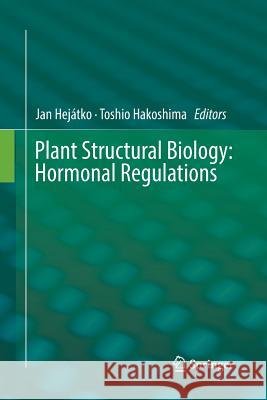Plant Structural Biology: Hormonal Regulations » książka
topmenu
Plant Structural Biology: Hormonal Regulations
ISBN-13: 9783030082338 / Angielski / Miękka / 2019 / 322 str.
Kategorie:
Wydawca:
Springer
Język:
Angielski
ISBN-13:
9783030082338
Rok wydania:
2019
Wydanie:
Softcover Repri
Ilość stron:
322
Waga:
0.46 kg
Wymiary:
23.39 x 15.6 x 1.75
Oprawa:
Miękka
Wolumenów:
01
Dodatkowe informacje:
Wydanie ilustrowane











